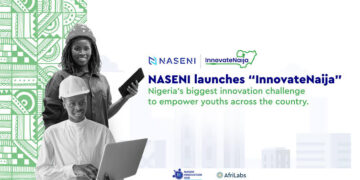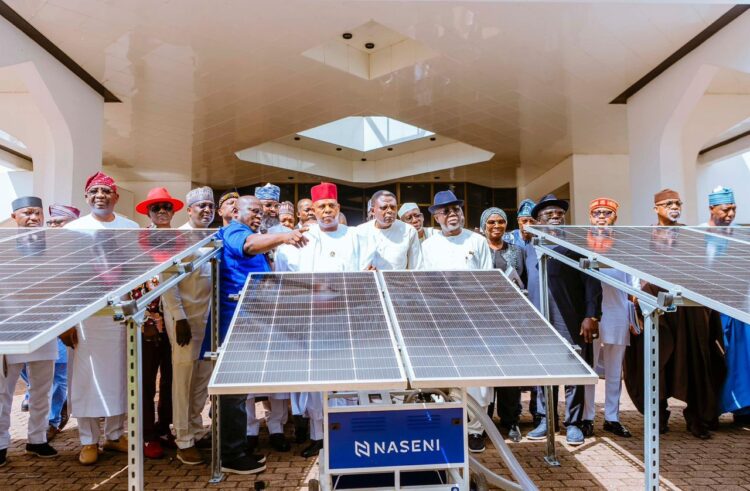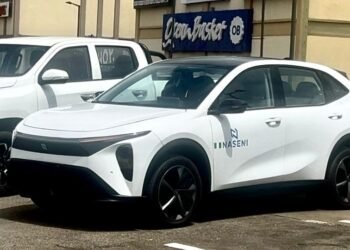By Umar Abubakar Shema
When I stand at the edge of my farmland, I often think of two things: the soil beneath my feet, and the sky above my head. Between them lies my hope for survival—rain to water the crops, sunshine to make them grow. But in recent years, rain has grown scarce, and petrol for irrigation pumps has grown too costly. Many of us farmers spend more time worrying about fuel prices than about our harvests.
This is why the news from Abuja last week felt different. At the Presidential Villa, the National Economic Council (NEC), chaired by Vice President Kashim Shettima, endorsed the rollout of NASENI’s solar-powered irrigation pumps nationwide. For the first time, it feels like someone in government has looked at our struggles and found a solution born out of Nigeria’s own ingenuity.
To grow food during the dry season, we rely heavily on irrigation. But the pumps we use are powered by petrol or diesel. With fuel prices biting deeper every year, many farmers like me can no longer afford to irrigate as much land as we used to. Some have abandoned dry season farming altogether, while others take loans that keep them trapped in debt. The result is smaller harvests, higher food prices, and greater hardship for rural families.
When rain fails and fuel prices rise, we farmers stand powerless. And when farmers are powerless, the nation’s food security weakens.
The new solar-powered irrigation pumps developed by the National Agency for Science and Engineering Infrastructure (NASENI) change the equation. These pumps draw their energy from the sun—free, abundant, and reliable. No more endless trips to buy petrol. No more uncertainty about how much of the harvest will be swallowed by fuel costs.
What excites me most is that the pumps are designed with us farmers in mind. They irrigate fields, they lower our costs, improve yields, and can even serve as backup power for our homes. They come with modern features like GPS tracking and mobile app dashboards—tools that allow us to monitor usage and manage costs with transparency. With the pay-as-you-go option, even smallholder farmers who are civil servants like me can access them without huge upfront expenses.
If these pumps are deployed widely in time for the 2025 dry season, Nigeria’s agricultural landscape could be transformed. More farmers will plant, more land will be cultivated, and food supplies will increase. This means lower prices in the markets, more income for farming families, and stronger rural livelihoods. For a country where food inflation is one of the harshest burdens, the ripple effect could be profound.
Vice President Shettima put it clearly: “NASENI’s Solar-Powered Irrigation Pumps prove that Nigerian ingenuity can compete globally.”
Mr. Khalil Suleiman Halilu, the Executive Vice Chairman/CEO of NASENI, also captured it well: “Together, we are building a more resilient agricultural sector, harvesting more sustainably and unlocking infinite possibilities for Nigeria.”
The NEC has directed Senator Abubakar Atiku Bagudu, Minister of Budget and Economic Planning, to work out funding so that NASENI can mass-produce and distribute these pumps quickly. For we farmers, timing is everything. If the pumps reach us before the 2025 dry season, the story of next year’s harvest will be one of abundance, not scarcity. The government should make this a priority.
For too long, we have labored under the twin burdens of erratic rainfall and expensive fuel. With NASENI’s solar-powered irrigation pumps, we finally have a tool that matches our resilience as farmers. It is a chance to reclaim our fields, secure our nation’s food future, and prove that innovation can grow from Nigerian soil to feed Nigerian mouths.
And for me, a farmer whose life depends on the earth and the sky, it feels like hope has finally found its way back into the soil.
— Umar Abubakar Shema, is a retired civil servant and writes from Katsina State
































